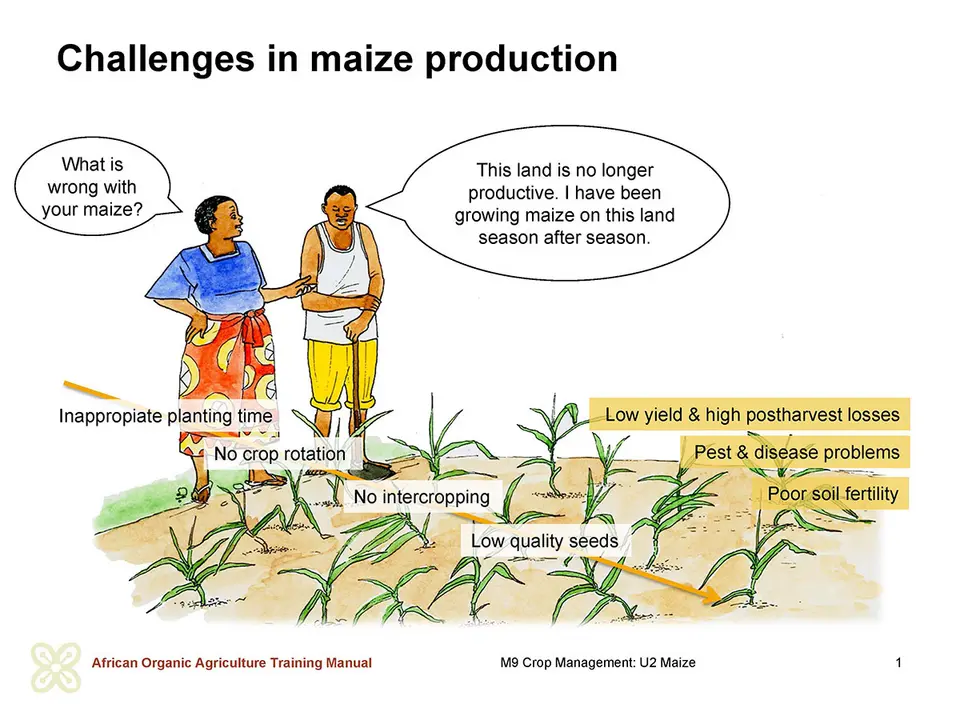Introduction
Maize (Zea mays L.) is a major staple food in sub-Saharan Africa. It can be used as food, feed for animals and as a source of industrial raw material. In sub-Saharan Africa, maize is grown mostly by small-scale farmers under rainfed conditions mainly for human consumption. It is consumed as green maize fresh on the cob, or is baked, boiled or roasted. The grain can also be dried, ground and boiled into porridge or fermented into beer.
According to FAO’s 2008 estimates, average national yields in sub-Saharan Africa are only about 1.4 tons per hectare as compared to the world average of 5.1 tons. Low yields in sub-Saharan Africa can be attributed to a variety of factors:
- Poor soil fertility is one of the leading challenges for small-scale farmers in sub-Saharan Africa. The increasing population density has resulted in the intensification of land use and forced many farmers to shorten or abandon the previously well followed fallow periods. As a result, nutrients and organic matter in the soil have become heavily depleted and this has resulted in a reduced soil fertility and productivity.
- The use of low quality seeds is another major cause of low maize productivity in sub-Saharan Africa. Poor seed selection and limited use of new improved commercial varieties are among the reasons why farmers are not able to cope with the productivity demand.
- Poor crop husbandry practices such as late planting, poor weed management, pest and disease attacks (e.g. stem borers) and the Striga weed are important constraints that lower maize yields.
- High postharvest losses especially due to improper drying and storage, lead to moulding and attack by the maize weevil during storage.
- Soil moisture stress is a continuous problem for most farmers who cultivate maize under rainfed conditions. The erratic nature of rainfall, including distribution of the rain, sometimes predisposes the maize to severe soil moisture stress, reducing yields significantly.
These constraints call for a change in approaches to maize crop management in order to increase yields. Organic practices can help to address the above challenges and ensure increased productivity and sustainability of the current maize supply.
Inquire about the farmers’ knowledge of maize production
To find out about the farmers’ perception of maize production, ask them the following questions:
- Have you experienced any decline in maize yields over the years?
- What do you think are the main causes of declining yields?
- What do you think needs to be done to improve maize yields?

 tap and then scroll down to the Add to Home Screen command.
tap and then scroll down to the Add to Home Screen command.